Why the Syria vote means Labour's problems are about to get worse
- Published
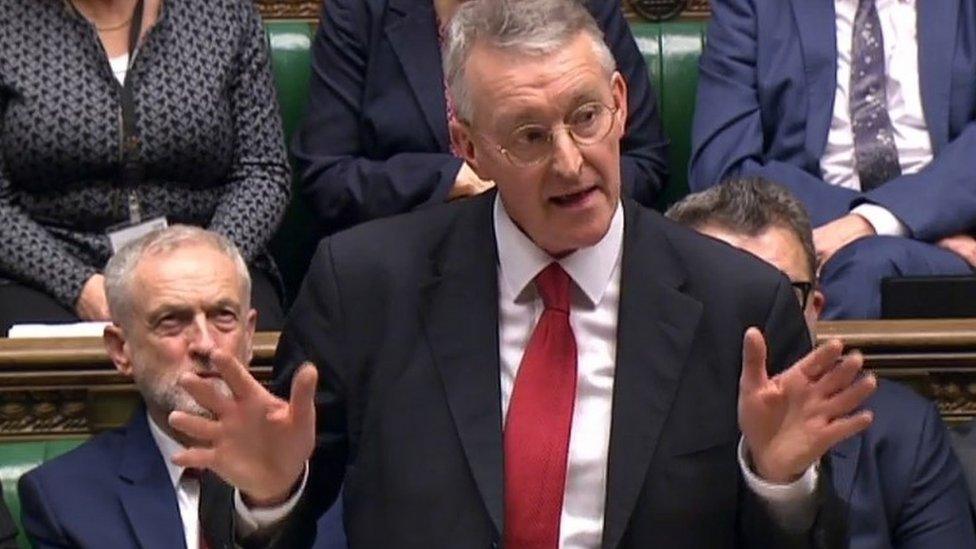
Hilary Benn's speech had many MPs clapping, but not his own party leader
Does Hilary Benn's barnstorming performance in the Syria debate mean he's about to displace his leader in some kind of Labour palace coup?
Probably not - for two sets of reasons.
First, the basic facts have not changed - there is no doubt that the situation inside the Labour Party remains dangerously unstable, with probably a majority of Labour MPs deeply uncomfortable with Jeremy Corbyn's leadership.
But his is a leadership his party members want, overwhelmingly so. And were a coup to be staged the membership would either re-elect him, or elect someone similar.
We're in Bertolt Brecht territory here: the easiest solution for Corbyn-sceptic MPs would be to dissolve the party membership and elect another, as the poet ironically suggested for the Communist regime in 1953.
But, failing that, they have to wait for the membership to change its mind.
The tactics of any coup attempt revolve around the different views of what might have to occur to trigger such a change.
Some think serious electoral reverses in next May's round of elections (the Scottish Parliament, Welsh Assembly, the London mayor etc) might do the trick.
London could be particularly significant, both as the place where Labour did best at the election in May and as the heartland of the Corbynistas.
The argument is that the election of a Tory mayor and a rough ride on the doorstep might re-educate enough of the new wave of Labour members to allow a different leader to be elected.
Murky rules
Others argue that it might take two such rounds of May defeats to change enough minds. This, of course, relies on those defeats actually occurring, not to mention them having the effect the anti-Corbyn camp want. We shall see.
And it's also worth underlining that the Syria intervention is an issue where Mr Corbyn is in tune with his membership.
Then there's the not insignificant question of how a leadership challenge would be triggered.
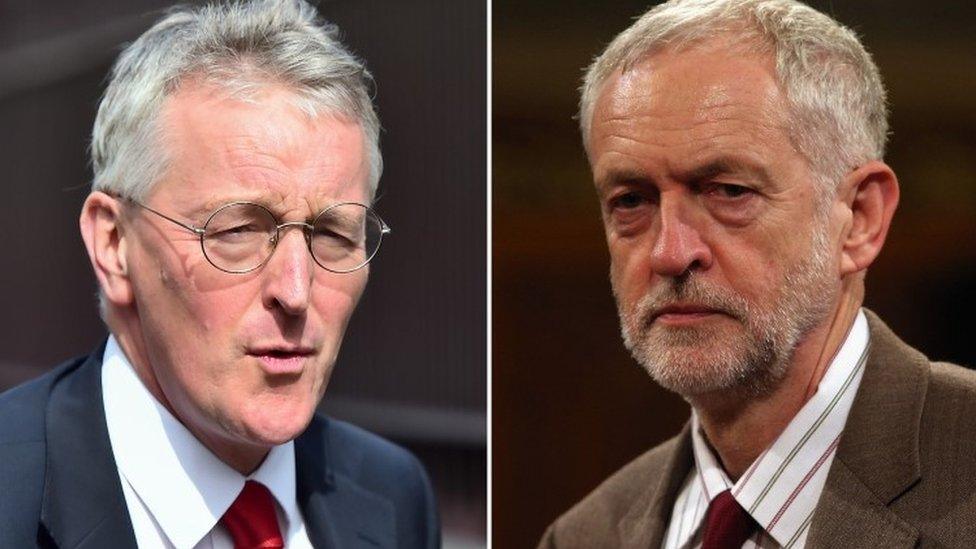
Mr Benn has put his head above the parapet but Mr Corbyn (r) is more in tune with the party membership
I'm told some Labour MPs have been digging into the archives to study how Hilary's dad, Tony Benn, went about challenging Neil Kinnock, in 1988, and that legal opinions on what Labour's murky and overlapping internal rules might actually mean are being studied in various Westminster offices.
One of the key questions is whether Mr Corbyn, if challenged, would need to be nominated by 35 MPs in order to defend his position or whether he would be assured of an automatic position on the ballot papers.
Second, there's the climate within the parliamentary Labour Party (PLP). One of the key problems for the coup plotters is identifying an alternative leader, to play Michael Howard to Mr Corbyn's Iain Duncan Smith, and at least keep the Labour show on the road in the 2020 election.
Mr Benn has certainly put his head above the parapet - but he's done so on an issue that is highly divisive within the PLP, rather than one of the several causes which pit most Labour MPs against their leader.
Agonised atmosphere
Take a look at the voting list on Wednesday, where two married couples - Harriet Harman and Jack Dromey and Jenny Chapman and Nick Smith - were split on the issue.
In that agonised atmosphere, Mr Benn's moral certainties may not play well in the longer term, whatever their on the day impact.
He may have given a masterly Commons performance (a real rarity these days) and made a powerful speech setting out the moral case for military intervention, in terms that had many Tory, as well as Labour, MPs swooning.
"He's clearly running for the leadership - but of which party?" tittered one SNP MP.
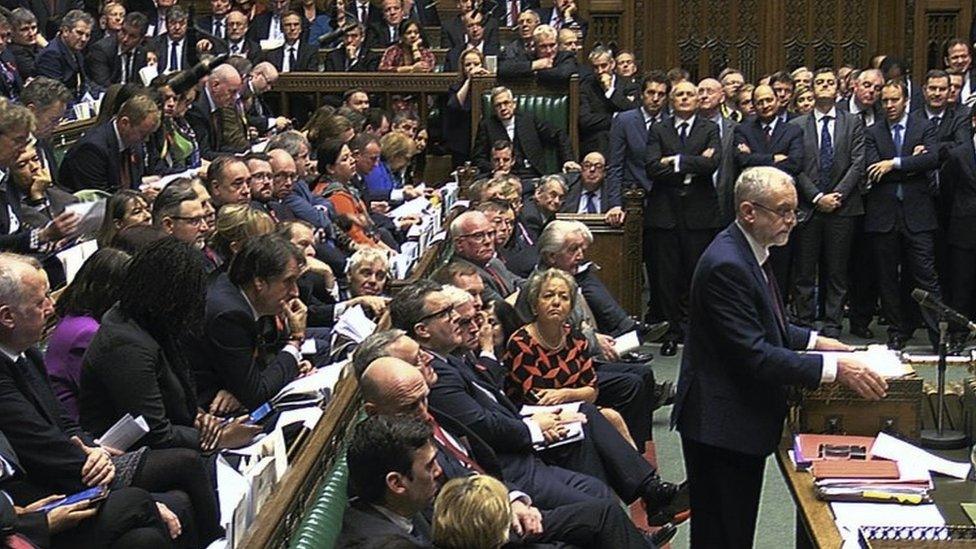
Some of Mr Corbyn's Labour critics say he may be more vulnerable to a challenge on the grounds of competence than ideology
But most of Mr Benn's Labour colleagues were conflicted about the issue of whether intervention would work… and I'm not sure the appeal he made to their internationalist roots and to memories of Arthur Greenwood "speaking for England" in 1940 will have won over those who doubt both their leader and the case for military action.
Certainly there were plenty of MPs from what might be called the "right" of the PLP who didn't back the government motion.
So it may be worth watching other figures who didn't break cover last night - Rachel Reeves, anyone?
All the same, Mr Corbyn's position has been weakened. He was forced to concede a free vote, under the threat of losing much of his shadow cabinet.
He was comprehensively outperformed by his shadow foreign secretary and some of his internal critics suspect that competence rather than ideology might be the most corrosive issue for his leadership.
Recriminations
This week also saw brutal meetings of the shadow cabinet and the PLP, and, ultimately, a significant chunk of the front bench voting with the government (Hilary Benn, Michael Dugher, Maria Eagle, Angela Eagle, Vernon Coaker, Tom Watson, Lucy Powell, Heidi Alexander, Chris Bryant, Gloria De Piero and Luciana Berger, for the record).

The vote on air attacks on IS in Syria split some married couples among Labour MPs
And that list included one of his personal left-field picks for high office, the shadow health secretary Ms Alexander. She's proved an effective performer, but I suspect her name is mud in the Corbyn inner circle.
Now there will be recriminations and, possibly, attempts at constituency level to deselect the recusants (there does not have to be a return to the '80s era of mandatory reselection; the coming Commons boundary changes will ensure most sitting MPs will not face a simple rubber-stamping to become their party's candidate again).
If they succeed, some MPs may quit immediately, forcing uncomfortable by-elections, or simply go rogue in the Commons and vote as they please.
We're still some way from further 80s retro developments like an SDP-style breakaway. And defections to the Liberal Democrats seem improbable, both because of the extent of their implosion last May and because a lot of Labour MPs regard the party's new leader, Tim Farron, as "Corbyn lite".
So we're left with a destabilised official opposition and no obvious way to resolve its problems that does not involve a major smackdown.
Things will get worse in the Labour Party before they get better.

Find out which constituency you live in
*The Commons is made up of 650 MPs but the Speaker and his three deputies cannot vote while Sinn Fein's four MPs do not take their seats and did not take part.
*There is also currently no MP for Oldham West and Royton, with a by-election taking place on Thursday.
- Published3 December 2015
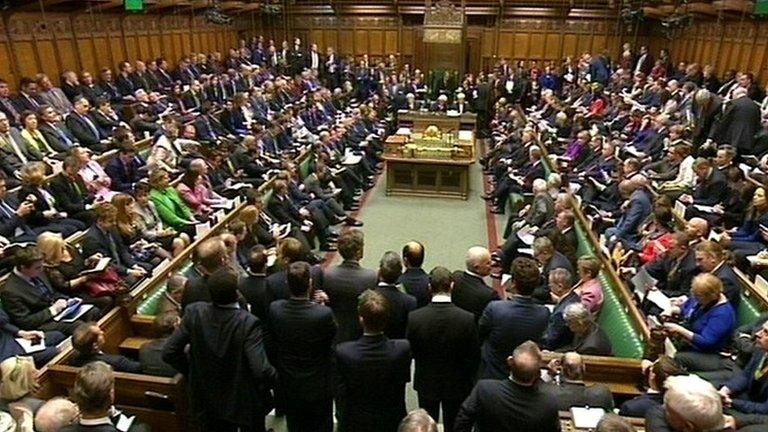
- Published3 December 2015
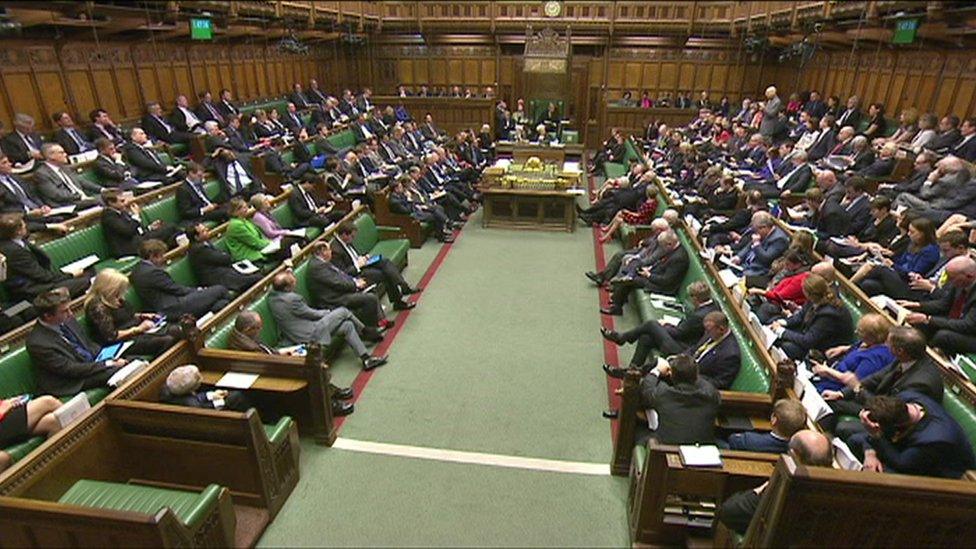
- Published3 December 2015
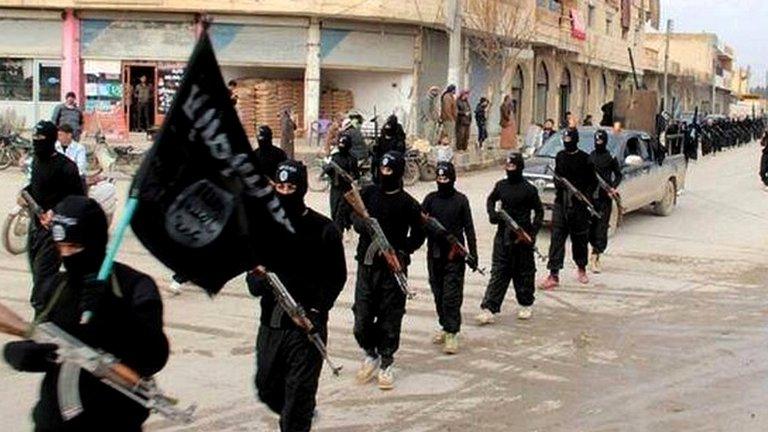
- Published3 December 2015
